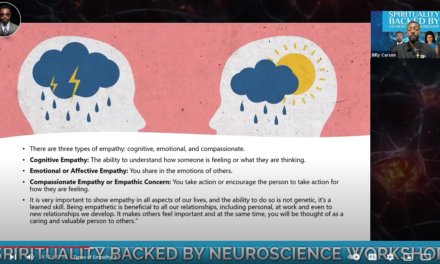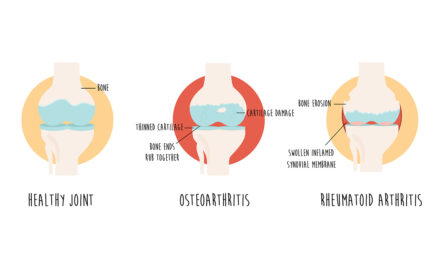Insomnia, characterized by sleeplessness, has reached alarming proportions in today’s world, particularly among urban high-income individuals. This is evident in the widespread use of sleeping pills prescribed by doctors and purchased at pharmacies. Tragically, overdoses leading to fatalities are not uncommon. By depriving the mind of essential rest, insomnia disrupts daytime activities and poses a significant health risk when chronic.
The Vital Role of Sleep for Optimal Functioning
For the body to function efficiently, regular periods of rest are crucial. Sleep relieves tension, rejuvenates both mind and body, and fosters a refreshed awakening. While sleep requirements vary, most adults require seven to eight hours nightly. Some manage well with four to five hours, thanks to deeper, more restorative sleep.
Insomnia in the Elderly
Several factors contribute to sleep disturbances in older adults. Their sleep is often fragmented by brief wakings, impacting quality more than quantity. Deep sleep stages typically decrease with age, leading to easier arousal. Sleep needs also diminish naturally, decreasing from nine hours at age 12 to six hours at age 80.
Symptoms of Insomnia
Dramatic changes in sleep duration and quality, persistent sleep pattern alterations, memory lapses, concentration difficulties, emotional instability, loss of coordination, confusion, and a persistent feeling of indifference are all telltale signs of pathological insomnia.
Causes of Sleeplessness
Mental strain triggered by anxiety, worry, overwork, or overexcitement is the most common culprit behind insomnia. Suppressed negative emotions like resentment, anger, or bitterness can also play a role. Other contributing factors include constipation, indigestion, overeating at night, excessive tea or coffee intake, hunger at bedtime, smoking (which irritates the nervous system), and even the mere worry about falling asleep.
Remedies for Sleepless Nights
Sleeping pills offer a false solution. They are addictive, lose effectiveness over time, and pose dangers like impaired cognitive function, fatal overdoses, and interactions with alcohol. Additionally, they come with a laundry list of side effects, including indigestion, skin rashes, weakened immunity, circulatory and respiratory problems, appetite loss, high blood pressure, kidney and liver issues, and mental confusion.
To truly overcome insomnia, prioritize a consistent sleep schedule with fixed bedtimes and wake-up times. Early to bed and early to rise is a golden rule. Remember, two hours of sleep before midnight is more beneficial than four hours after. During exam periods, students burning the midnight oil with endless cups of tea are only inviting exhaustion and compromised focus.
Research indicates that chronic insomnia sufferers often lack key nutrients like B-complex vitamins, vitamins C and D, calcium, magnesium, manganese, potassium, and zinc. Adequate dietary intake of these nutrients is crucial for proper sleep mechanisms.
Dietary Modifications for Enhanced Sleep
A balanced diet with simple modifications can go a long way in managing and eliminating insomnia. Avoid white flour products, sugar and its products, tea, coffee, chocolate, cola drinks, alcohol, fatty foods, fried foods, foods with additives, excessive salt, and strong condiments.
Instead, embrace a breakfast of fresh and dried fruits, whole cereals, seeds, and yogurt. For one main meal, enjoy a large mixed salad, and for the other, prioritize protein. A cup of milk with honey before bed can be helpful, as the amino acid tryptophan in milk promotes sleep.
Relaxation Techniques for a Restful Night
Forcing sleep only pushes it further away. Instead, try calming activities like soft music or light reading. As you prepare for bed, visualize a blank black wall filling your field of vision and focus on peaceful thoughts. Use light bedding and relax your body. Avoid lying on your back; side-lying with bent knees and slightly forward head and shoulders is recommended. Don’t be afraid to shift positions throughout the night.
Controlled breathing can also induce sleep. Lie on your side and take three deep breaths, expanding your abdomen. Hold your breath as long as comfortable, then repeat three more breaths with breath-holding. This increases carbon dioxide levels in the body, promoting natural sleep.
Regular exercise, both vigorous daytime workouts and light evening routines, improves sleep quality and quantity. Exercise flushes out lactic acid associated with stress and muscle tension, and triggers beneficial hormonal changes. Walking, jogging, skipping, and swimming are ideal options, but avoid strenuous activities close to bedtime.
Yoga and Hydrotherapy for Improved Sleep
Yoga benefits many insomnia cases in two ways: by invigorating the glandular, respiratory, and nervous systems, and by providing physical and mental relaxation. Effective yoga poses for insomnia include Shirsasana, Sarvangasana, Paschimottanasana, Uttanasana, Viparitakarni, and Shavasana. Hydrotherapy can also be a valuable tool. Applying hot packs to the spine before bed, hot foot baths, alternating hot and cold foot baths are all time tested methods.
In addition to implementing diverse strategies to address insomnia, it is crucial to actively reduce stressors. This entails consistently engaging in relaxation methods or meditation practices, embracing a slower approach to daily activities—especially eating, walking, and talking—restricting the workday to nine to ten hours over five and a half days per week, fostering a creative hobby with daily dedication, steering clear of unrealistic work targets, and adhering to a practice of finishing one task before commencing another.



















